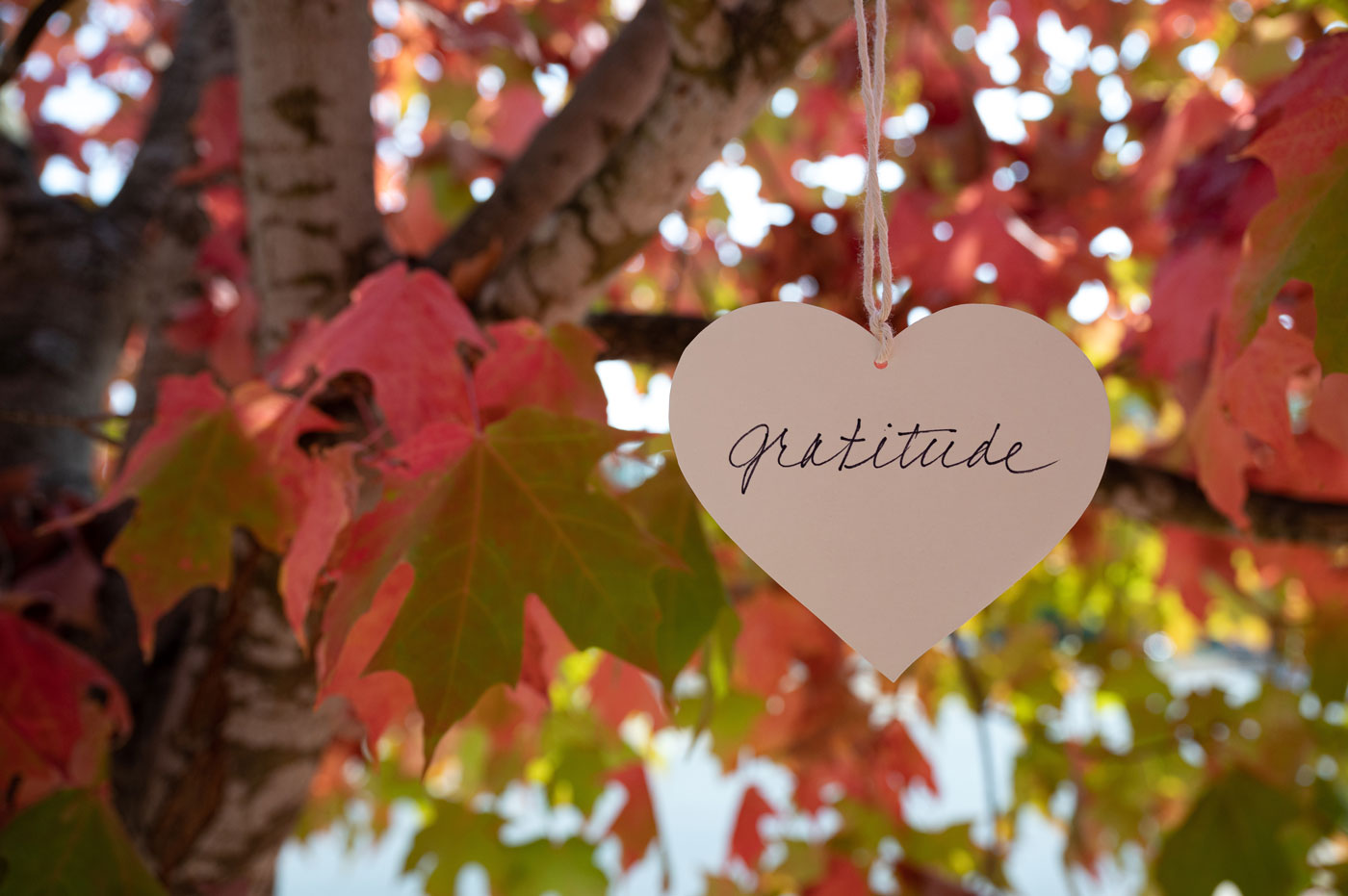Gratitude & Sustainability
By now, many of us are familiar with the outstanding benefits of living a grateful life: improved mental and physical health, along with increased feelings of happiness, joy, and contentment. But did you know that expressing gratitude can actually help us to live more sustainably? An exciting new study has shown just that.
Thankfulness and Collective Well-Being
The 2-part study published in the journal Emotion, explored the “dilemma between acting in self-interest for present benefit versus working toward long-term collective gain” and how a sense of gratitude can help to minimize the former. The researchers believe that because gratitude is linked to prosociality (kind and helpful behavior) and self-control, it may help people to consume less of our finite resources.
In the first experiment, participants were primed to experience a state of gratitude or neutrality prior to playing a game that involved either sustaining or depleting a specific resource pool. The neutral group exhibited a pattern of depletion, while those in the gratitude group did not.
The second experiment replicated the previous results and also established that gratitude is distinct from a sense of happiness. The team concludes that “[t]hese findings show that gratitude, as opposed to a general positive emotional state, buffers against overtaking in resource dilemmas and suggests that this emotion may be useful in promoting sustainable behavior.”
Lead researcher Shanyu Kates points out that in previous studies, happiness can actually drive self-centered behaviors. “When you’re feeling happy, you might not want to sacrifice by taking less and conserving for the group,” Kates says. Whereas gratitude focuses on both individual and collective well-being and social connection.
Kates adds, “Sustainability really requires action for future benefit as well as collective benefit. Gratitude promotes these dimensions—it makes us behave more prosocially, and it makes us more cooperative with others.”
Psychologist Scott Allison of the University of Richmond, who was not involved in the study, notes that the study establishes that practicing gratitude is a powerful habit to reduce taking beyond our needs and to live more sustainably.
Gratitude led to less greedy and more generous choices,” he says. “What’s really impressive is how the investigators were able to demonstrate that it was gratitude itself, not the happiness that results from gratitude, which produces more prosocial behavior.
The Many Benefits of Gratitude
The link between gratitude and living more sustainably is just one of the many benefits of the practice. Research has also firmly established that expressing gratitude is one of the surest ways to improve mental and physical health outcomes. In one study involving close to 300 university students, those who wrote letters of gratitude “experienced significantly better mental health, compared to participants who wrote about their deepest thoughts and feelings regarding a negative experience.”
You can read more about how gratitude can shift our thoughts so that we can experience more tranquility, happiness, and joy in my post, Gratitude: A Powerful Practice for Relieving Stress and Anxiety.
Calming the Body and Mind with Herbal Remedies
We can also utilize herbal remedies if we feel as though we need a little extra help in soothing our mind and spirit. For this purpose, I have combined a range of potent adaptogens and calming herbs in my Stress & Anxiety Tincture. This formulation includes Ashwagandha, Lemon Balm, and both Lion’s Mane and Reishi Mushrooms. When we are calm, cool, and collected, we have a better chance of seeing the big picture — and recognizing all that we have to be thankful for. You can learn more about the power of medicinal botanicals by visiting the Apothecary today!
Nicole Apelian




